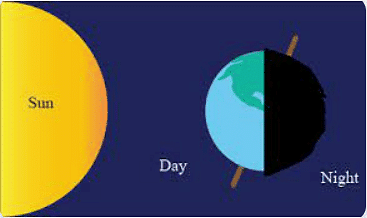Class 2 Time - CBSE Worksheets- 1 Solutions
| Table of contents |

|
| Multiple Choice Questions (MCQs) |

|
| Fill in the Blanks. |

|
| Match the Following. |

|
| True and False. |

|
| Short Answer Questions. |

|
Multiple Choice Questions (MCQs)
(i) The period of time from sunrise to sunset in a given place, is called a
(a) day
(b) evening
(c) morning
(d) night
Ans: (a)
Day is the time when the Sun is up in the sky.
 Day and Night
Day and Night
(ii) A year has
(a) thirteen months
(b) twelve months
(c) two months
(d) seven months
Ans: (b)
A year is of 12 months: January, February, March, April, May, June, July, August, September, October, November, and December.
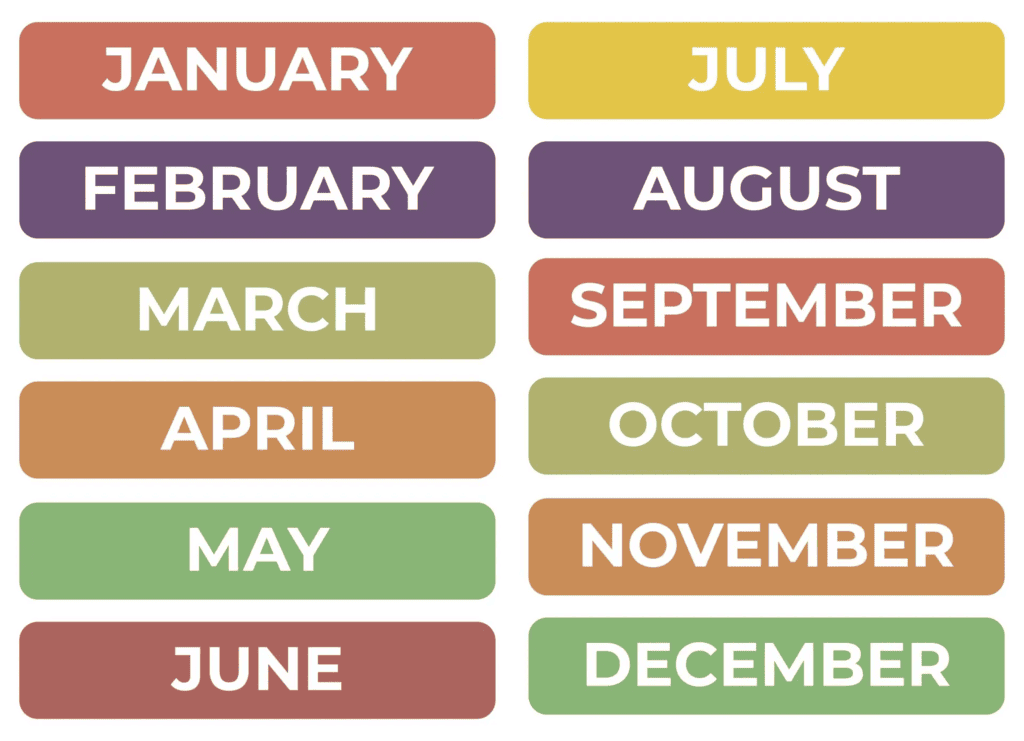 Months of Year
Months of Year
(iii) Equipment that help us to know the time of the day are
(a) months and years
(b) days and nights
(c) clocks and watches
(d) none of these
Ans: (c)
Clocks and watches tell us the time of day
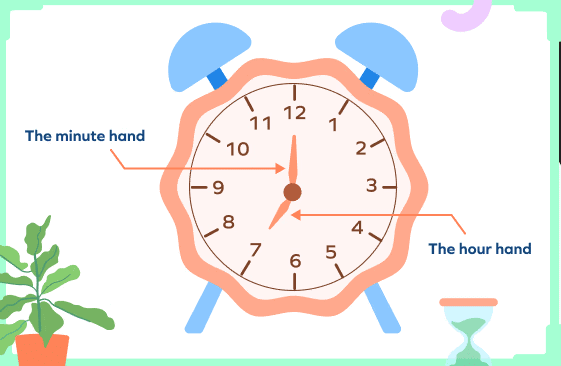 Clock
Clock
Fill in the Blanks.
(i) Time before ______ is AM.Ans: Time before afternoon is AM.
Time before 12 noon is called A.M. Time after that is P.M.
(ii) The Earth receives light from the ______.
Ans: The Earth receives light from the Sun.
The Sun gives us light and warmth, and helps plants grow.
(iii) The part of the ______ that faces the Sun has day.
Ans: The part of the earth that faces the Sun has day.
When one side of the Earth faces the Sun, it is day there. The other side has night.
Match the Following.
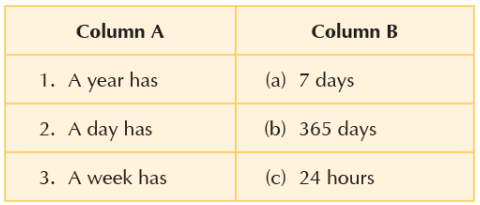 Ans:
Ans:
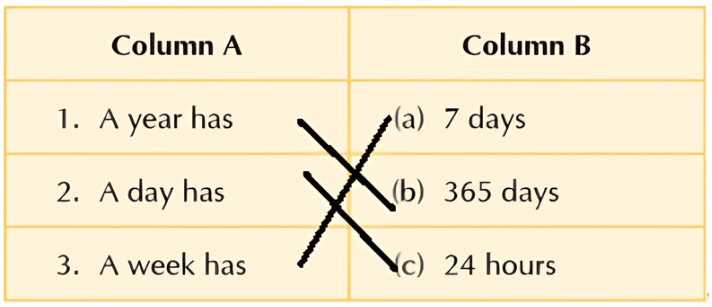
True and False.
(i) A year has 240 days.
Ans: False
A normal year has 365 days, and a leap year has 366 days.
(ii) A clock has one to twelve numbers.
Ans: True
A clock shows 12 numbers to tell the time.
(iii) Every hour has 65 minutes.
Ans: False
Every hour has 60 minutes.
 Rotation of Earth causes Day and Night
Rotation of Earth causes Day and Night
Short Answer Questions.
(i) What is a leap year?
Ans:
- A leap year has 366 days.
- It comes every 4 years.
- February has 29 days in a leap year.
(ii) What is revolution?
Ans:
- The Earth goes around the Sun in a fixed path.
- This movement is called revolution.
- It causes the seasons to change.
(iii) What is rotation?
Ans:
- The Earth spins like a top on its own axis.
- This spinning is called rotation.
- Rotation causes day and night.
|
1 videos|494 docs
|
FAQs on Class 2 Time - CBSE Worksheets- 1 Solutions
| 1. What is the importance of time management in exams? |  |
| 2. How can I improve my time management skills during exams? |  |
| 3. What are some common time-wasting habits to avoid during exams? |  |
| 4. How can I effectively manage my time during a lengthy exam? |  |
| 5. What are some tips for staying focused and avoiding distractions during exams? |  |

